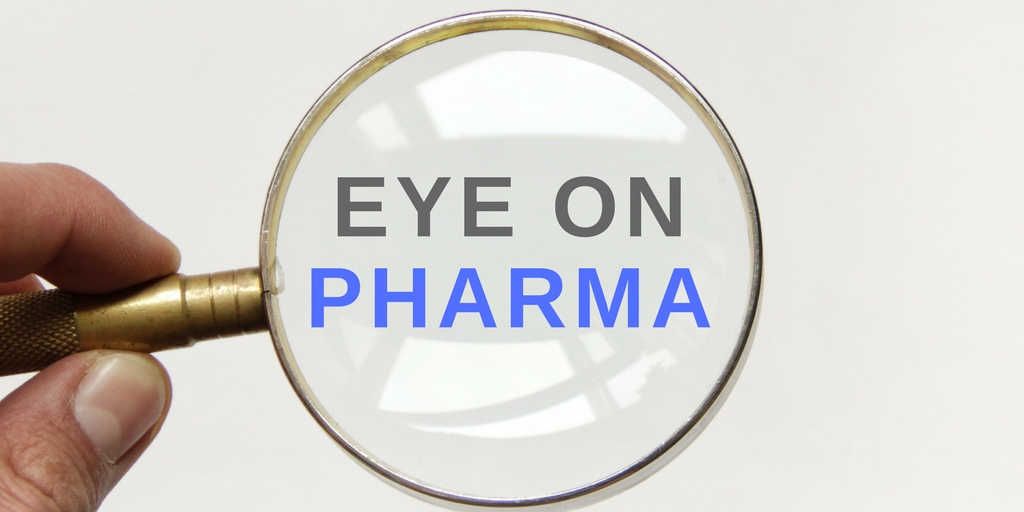- Bone Health
- Immunology
- Hematology
- Respiratory
- Dermatology
- Diabetes
- Gastroenterology
- Neurology
- Oncology
- Ophthalmology
- Rare Disease
- Rheumatology
Eye on Pharma: Hadlima Interchangeability; CHMP Green Lights Ustekinumab; Biosimilars Forum Supports Draft Legislation
The FDA agreed to review an application for Hadlima (adalimumab biosimilar) to be granted interchangeability; The European Union’s Committee for Medicinal Products for Human Use (CHMP) gave a positive opinion for an ustekinumab biosimilar; the Biosimilars Forum expressed support for a Senate Finance Committee’s draft legislation promoting biosimilars.

The FDA agreed to review an application for Hadlima (adalimumab biosimilar) to be granted interchangeability; The European Union’s Committee for Medicinal Products for Human Use (CHMP) gave a positive opinion for an ustekinumab biosimilar; the Biosimilars Forum expressed support for Senate Finance Committee’s draft legislation promoting biosimilars.
FDA to Review Interchangeability for Hadlima
Samsung Bioepis announced that the FDA accepted its supplemental biologics license application (sBLA) for Hadlima (adalimumab-bwwd) to receive an interchangeability designation. If approved, Hadlima will be the third adalimumab biosimilar to be deemed interchangeable, following Cyltezo and Abrilada.
The submission for the sBLA was based on clinical data from a phase 4, randomized, double-blind, 1:1 ratio, parallel-group, multiple-dose, active comparator, multicenter clinical study analyzing the safety and efficacy of switching between Hadlima and its reference product (Humira) in patients with moderate to severe plaque psoriasis.
Interchangeability designations allow pharmacists to dispense a biosimilar in place of a reference product or another biosimilar without having to obtain permission from a provider first. The label is intended to make it more convenient for patients to obtain biologic medicines and expand access to biosimilars. The label does not trump prior authorization or step therapy requirements but it can reduce the time it takes for patients to receive their medications in the event that their prescribed product is unavailable due to stocking shortages or supply chain issues.
The low-concentration version of Hadlima was first approved by the FDA in July 2019 and launched on the US market in July 2023. In August 2022, the FDA approved the high-concentration version. Although Samsung Bioepis is the manufacturer of the product, in the United States, it is marketed by Organon. Hadlima is approved to treat rheumatoid arthritis, juvenile idiopathic arthritis, psoriatic arthritis, ankylosing spondylitis, and inflammatory bowel disease.
CHMP Green Lights Ustekinumab Biosimilar
STADA and Alvotech received a positive opinion from the European Medicine Agency’s CHMP for Uzpruvo (AVT04), an ustekinumab biosimilar to Stelara (reference ustekinumab). This marks the EMA's first proposal to authorize a biosimilar to Stelara.
If granted, Uzpruvo would be indicated for Crohn disease, psoriasis, and psoriatic arthritis across the European Union, Iceland, Liechtenstein, and Norway. Under their 2019 partnership, Alvotech developed AVT04, while STADA holds commercial rights in Europe.
The positive CHMP opinion follows the acceptance of the marketing authorization application for AVT04 in February 2023 for review, based on a comprehensive package of analytical and clinical data. This included results from the AVT04-GL-301 study demonstrating therapeutic equivalence between AVT04 and Stelara in patients with moderate to severe chronic plaque-type psoriasis.
Ustekinumab targets the p40 protein in immune-mediated diseases. With Stelara among Europe’s top 10 medicine brands, biosimilar competition post-EU exclusivity offers potential cost savings for health care systems.
Biosimilars Forum Champions Senate Draft Legislation
The Biosimilars Forum, under the leadership of executive director Juliana M. Reed, expressed support for the Senate Finance Committee's legislative draft that emphasized high-discount biosimilars in Medicare Part D. The draft proposed rules, starting in 2026, requiring Part D plans to offer biosimilars priced at least 45% lower than reference biologics. The Forum viewed this as a bipartisan solution to address escalating drug costs and anticipated cost savings for patients.
The draft aimed to promote biosimilar use through Part D plans, with the goal of reducing patient costs. Despite the launch of 8 adalimumab biosimilars, limited Medicare formulary access hindered their uptake. The draft addressed this by specifying coverage and cost-sharing rules for "high-discount biosimilars" starting in 2026, with biannual updates from CMS.
The Biosimilars Forum emphasized the urgency of improving access to affordable biosimilars, citing hindrances to free-market competition, limited patient savings, and threats to the sustainability of biosimilar development. The organization urged the Senate Finance Committee to advance these provisions as a crucial step toward affordable, life-saving treatments for patients.
Newsletter
Where clinical, regulatory, and economic perspectives converge—sign up for Center for Biosimilars® emails to get expert insights on emerging treatment paradigms, biosimilar policy, and real-world outcomes that shape patient care.
